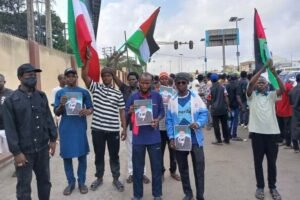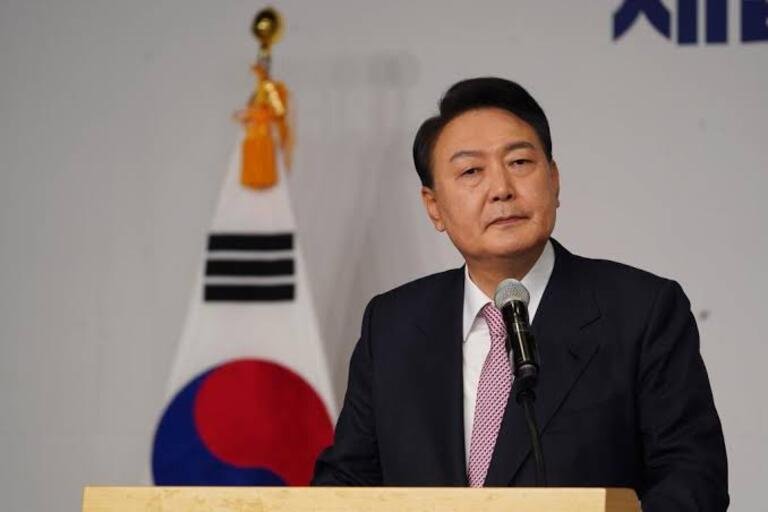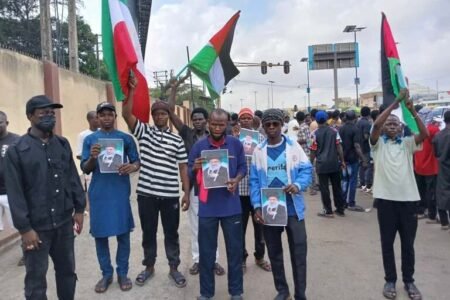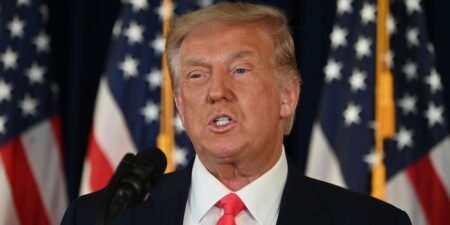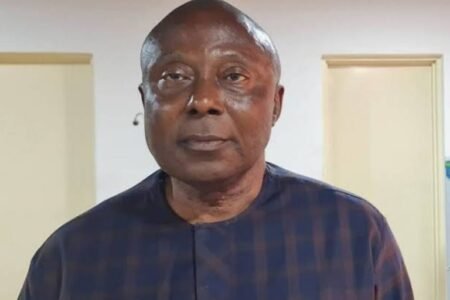Yoon Suk Yeol, South Korea’s impeached leader, was arrested on Wednesday for his failed martial law push, concluding a weeks-long standoff with authorities and becoming the country’s first president to be jailed.
Yoon, who is charged with insurrection for his brief attempt to establish martial law last month, said he would cooperate with authorities to avoid “bloodshed.”
Yoon, a former prosecutor who led the conservative People Power Party to victory in the 2022 elections, faces the death penalty or life in prison if convicted of insurrection.
For weeks, he had attempted to avoid arrest by remaining in his residential compound, guarded by officers of the Presidential Security Service who were loyal to him.
His guards had erected barbed wire and barriers around the house, transforming it into what the opposition dubbed a “fortress.”
Yoon, who had promised to “fight to the end,” successfully thwarted a first arrest attempt on January 3, 2025, after a dramatic hours-long standoff between guards and anti-graft detectives working with the police.
However, before daybreak on Wednesday, hundreds of police officers and Corruption Investigation Office investigators surrounded the mansion once more, with some scaling outer walls and hiking up back trails to reach the main building.
After a five-hour standoff, authorities revealed Yoon’s arrest, and the impeached leader issued a pre-recorded video message.
“I decided to respond to the Corruption Investigation Office,” Yoon wrote in the message, adding that he did not accept the investigation’s legality but was complying “to prevent any unfortunate bloodshed.”
Yoon was driven from his home in a motorcade to the CIO’s offices.
According to Yonhap, investigators began questioning Yoon shortly after he was arrested.
AFP reporters had previously witnessed brief scuffles at the residence’s gate, where Yoon’s ardent fans had gathered to protect him as officials first moved on the premises.
His supporters were heard yelling, “Illegal warrant!” as they waved glow sticks and South Korean and American flags. Some lay on the ground outside the main gate to the residential property.
The impeached president stunned the nation late on December 3 by declaring martial law, claiming that he needed to protect South Korea “from the threats posed by North Korea’s communist forces and eliminate anti-state elements.”
He sent troops to parliament, but members ignored them and voted against martial law. Yoon lifted martial law after only six hours.
He can be kept for up to 48 hours after his arrest. To hold him in custody, investigators would need to get another arrest warrant.
His legal team had repeatedly called the warrant unconstitutional.
His ruling party also claimed that Wednesday’s arrest was unconstitutional.
“History will inevitably record the fact that the CIO and the police executed an unjust and illegal warrant,” PPP floor leader Kweon Seong-dong said at a party gathering and apologised to Yoon supporters.
In a parallel investigation, the Constitutional Court opened a trial on Tuesday to determine Yoon’s impeachment by parliament.
If the court upholds the impeachment, hewill finally lose the presidency, and new elections must be held within 60 days.
The trial was deferred on Tuesday after only a brief hearing because Yoon declined to appear. The next hearing is scheduled for Thursday; however, the proceedings might stretch for months.
South Korea’s opposition Democratic Party applauded Yoon’s detention, with floor leader Park Chan-dae stating at a party meeting that it was “the first step” towards restoring constitutional and legal order after weeks of chaos.
The country’s parliament speaker mirrored these comments.
“Now that the chaotic situation has ended, we should concentrate our efforts on stabilising state affairs and restoring people’s livelihoods,” Woo Won-shik said.
